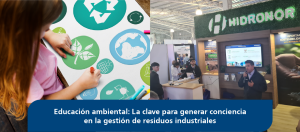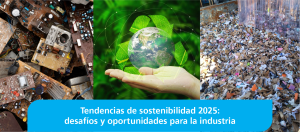
The best scenario that we can adopt as a country is to implement services that contribute to environmental remediation, highlighting, among others, the cleanup of contaminated land, and that is what at Hidronor we have been doing for the last 25 years to combat climate change. .
To contribute to this objective, we constantly participate in events and seminars that allow us to gather information about the latest trends and regulations in the industry, as well as to contribute our expert knowledge regarding certain actions and matters.
Along these lines, this Wednesday, September 6, we participated in the Web Seminar on “Contexts and challenges for environmental soil sanitation in Chile” organized by the University of Las Américas and Codexverde. At the event, our Commercial Manager, Juan Andrés Salamanca, presented interesting data associated with this topic together with other specialists, such as Carolina Parodi, director of UTEM Technology Transfer; and Juan Pablo Leppe, lawyer and consultant in matters of Public and Environmental Law.
During the activity, our executive stated that "as a company concerned about caring for the environment, in the last decade we have successfully managed more than 450,000 tons of contaminated soil through comprehensive solutions for the remediation, sanitation, and revaluation of environmental liabilities, such as abandoned tailings deposits and land contaminated with hydrocarbons and other substances.”
Furthermore, with our services we generate value to reduce the main impacts of industrial activity caused by the dispersion, spill or transfer of dangerous substances that finally accumulate in the soils of industrial facilities, thus generating various diseases for human beings and also effects negative for the environment.
Our Commercial Manager also highlighted that Antofagasta has been the area that has made the most progress in soil remediation and that the main techniques for this purpose are “containment, storage and confinement, and decontamination.”
“The challenge should be to move towards standards from developed countries, because the methodology already exists and must be adapted to our country. Finally, thanks to our services and the constant improvement in our processes (added to the know-how that characterizes us) we will continue to contribute to the care of the ecosystem and ensure that we build a more sustainable Chile for everyone,” Salamanca concluded.







